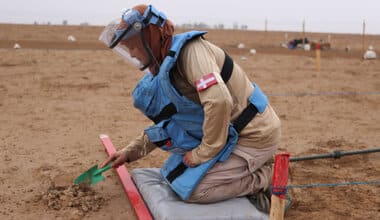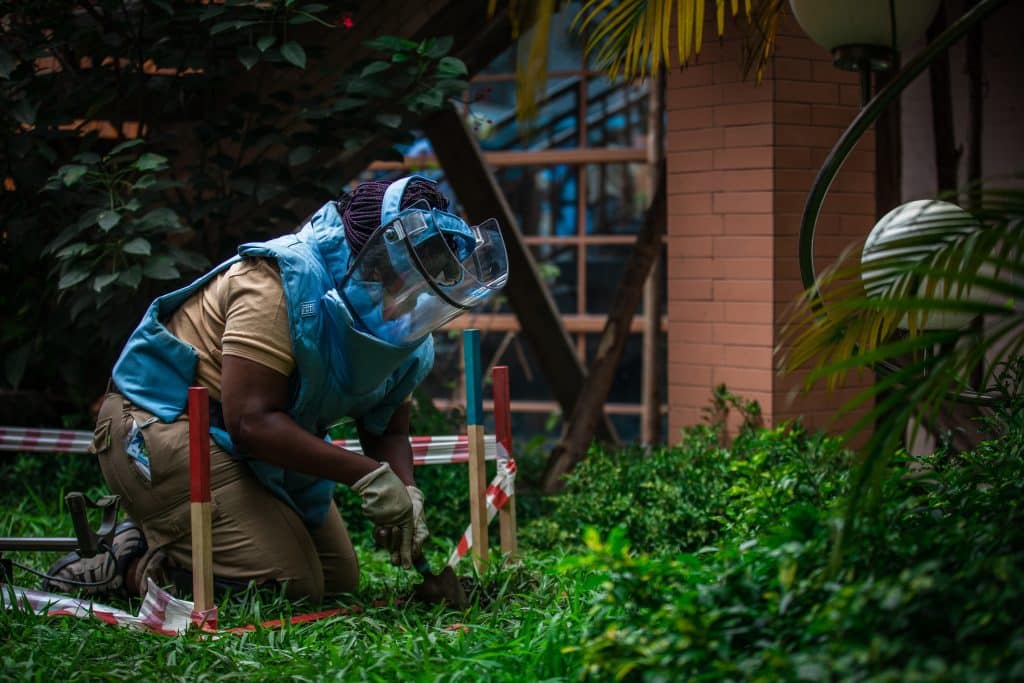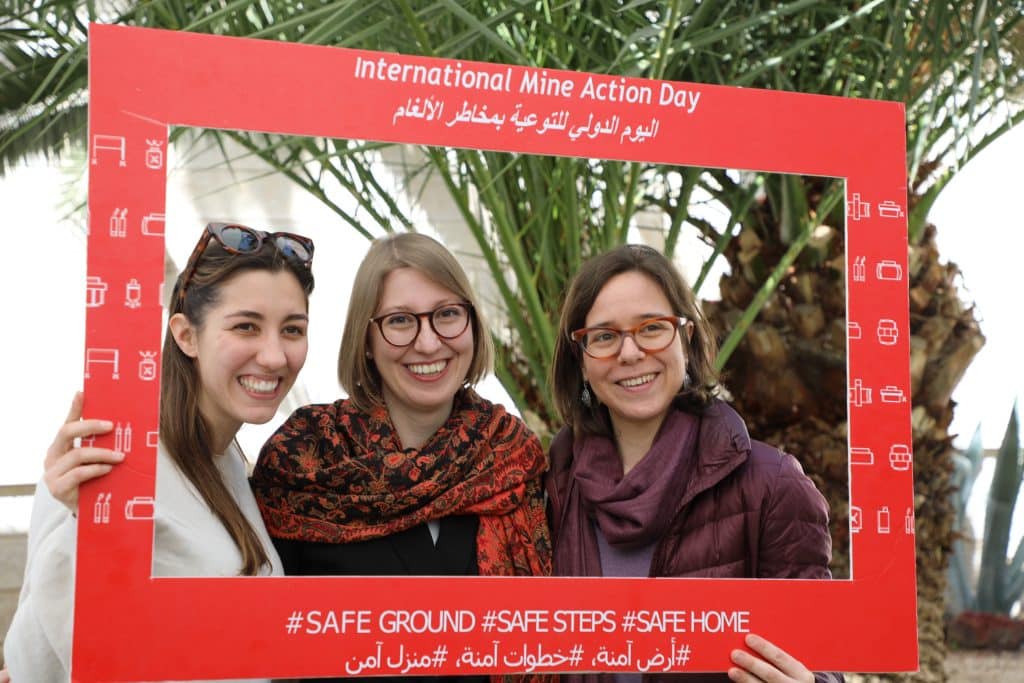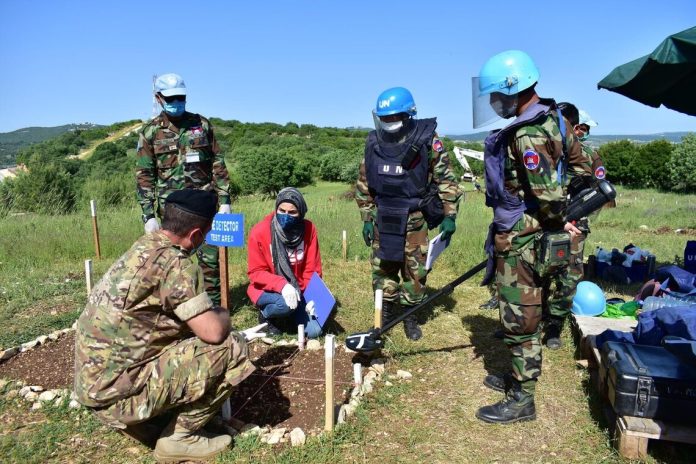Denmark, perhaps surprisingly, has long played a significant, even leading role in mine action at the international level. Today, Danes are at the forefront of mine action in Ukraine. On December 8, 2005, the UN General Assembly declared April 4 of each year to be the International Day for Mine Awareness and Mine Action.
The Convention and the International Day
The Mine Ban Treaty (also known as the Ottawa Convention) was concluded by a large number of countries on December 3, 1997, and declared binding under international law on March 1, 1998. The declaration ended the use of anti-personnel mines, which had been widespread since the Second World War. Moreover, in the subsequent Cold War period, landmines were used along national borders.
A vicious weapon

The particularly vicious aspect of landmines is that they are often not intended to kill their victim. Rather, their function is to incapacitate the victim, a potential enemy not only losing their combat capability but also requiring medical attention. In this way, a military force is put under additional pressure.
The impact on civilians is equally dire. An area whose inhabitants have fled because of war may become uninhabitable because of mine laying. This means that the consequences of war do not only claim victims during and immediately after the fighting. Instead, for civilians, war may be prolonged for decades after it has officially ended – causing further trauma, death, mutilation and loss of homes and personal attachments. Ordinary people’s homes can become virtually uninhabitable.
Danish-Swedish mine action at the forefront

The Mine Ban Convention led to the creation of various efforts both within and outside the UN framework. Within the UN, there is the UNMAS service; on the Danish and Swedish side, DDG is an example.
In 2002, the DDG (Danish Demining Group), part of the Danish Refugee Council, was given the lead role in demining in Afghanistan by the UN. Danish and Swedish experts in DDG were recognized as highly professional and competent in the field.
DDG demining teams during this period consisted of larger and smaller teams, up to around 30 people. In addition to mines, the experts also dealt with unexploded ordnance, which, like mines, is a huge problem in war-torn areas. Although the DDG has faced some criticism from some quarters since its creation in 1997 for not cooperating enough with other aid agencies, its efforts are universally recognized as highly professional and competently executed.
Today – Ukraine as a case study

The DDG plays a very important role in war-torn Ukraine today. The organization is the first to begin demining and clearing unexploded ordnance in north-eastern Ukraine since the war started in 2022.More generally, the UN has been destroying thousands of mines and other explosives on Ukrainian soil for almost 10 years since the Russian annexation of Crimea in 2014.
The UN and the Secretary-General’s vision
In 2019 on the International Day, Secretary-General António Guterres stated that “the path towards achieving the 2030 goals must be free of mines, explosive remnants of war and improvised explosive devices.”
See also here.






